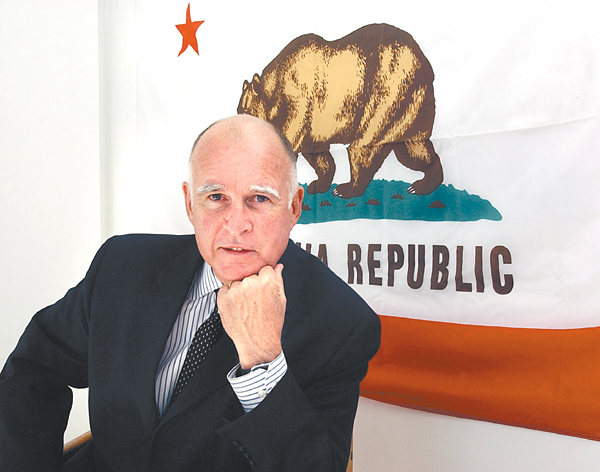A new poll confirms a fear we’ve raised before – Gov. Jerry Brown’s insistence on coupling the popular tax on millionaires with an unpopular increase in the sales tax could doom the revenue package this November – putting pressure on the governor and his allies to step up their political games and save the schools from disastrous cuts.
The SF Chronicle’s story on the Public Policy Institute of California poll focused on the disconnect voters have between government services they support and their willingness to pay for them, which isn’t exactly news to anyone. A big reason for this state’s dire fiscal situation is that people want something for nothing.
Last year, thanks to the Occupy Wall Street movement highlighting how the richest 1 percent have amassed ever-greater wealth at the expense of the rest of us, that dynamic began to change. People started to openly and consistently advocate for increasing taxes on the wealthy, no longer cowed by accusations of “class warfare.”
The PPIC poll found that 65 percent of respondents like the idea of taxing millionaires and putting that money toward education, while 80 percent oppose the $5 billion in trigger cuts to schools that will occur if voters reject the tax measure. But only a slim majority of 54 percent favor the measure that Brown is pushing, mostly because 52 percent say they don’t like the sales tax increase, a regressive tax that will likely be highlighted repeatedly by opponents of the measure.
That’s a big challenge for the broad coalition that supports the measure, but it’s an especially big deal for Brown. He was the one who created this bad combination in the first place, and convinced the California Federation of Teachers to drop its Millionaires Tax – the clean measure that would have 65 percent support right now – in favor of a merged measure that’s a bit more progressive than Brown’s original idea.
Assembly member Tom Ammiano and other progressives we respect have said they like the compromise and worried that competing tax measures could sink them all in this make-or-break election (that’s because under state law, tax measures need a simple majority only during presidential elections, meaning it will be four more years until we have this opportunity again).
Maybe, but the sales tax increase was never a good idea, and these poll numbers show they’ve got a difficult challenge on their hands. In particular, Brown will need to finally prove his repeated campaign statements that he’s the one with the knowledge, skills, and experience to get things done in the dysfunctional, gridlocked state. It’s time to make good on those words, governor.

